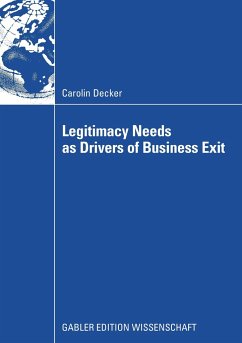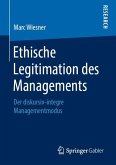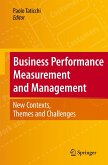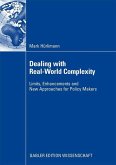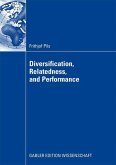Foreword A diversified firm's withdrawal from a business unit (i.e. business exit) is a very - portant phenomenon in management practice. In fact, studies from the U.S. show that approximately 2,500 business units are sold each year. According to a survey of the consulting firm Accenture among 150 executives from the Fortune 1000 companies, 59 % of the persons polled are momentarily divesting at least one business unit. - though divestitures are highly relevant in practice, researchers in strategic management tend to prefer investigating the counterpart of exit, namely the acquisition of business units. Trying to fill this gap, Ms. Decker's dissertation aims to shed light on the impact of business exit on the corporate strategy of the divesting parent firm. First, Ms. Decker summarizes the literature on business exit from the last three d- ades in a systematic and comprehensible way. This is a deserving task since the l- erature on this topic is widely dispersed, e.g. in the field of finance, amongst others. Referring to the existing findings, the literature review shows that prior research has mainly focused on two questions: "What factors promote business exit?" and "What are the financial outcomes of business exit for the divesting parent firm?". Drawing on this background, the author convincingly argues that, up to now, the strategic impli- tions of business exit for the divesting parent firm have largely been ignored.
Bitte wählen Sie Ihr Anliegen aus.
Rechnungen
Retourenschein anfordern
Bestellstatus
Storno

